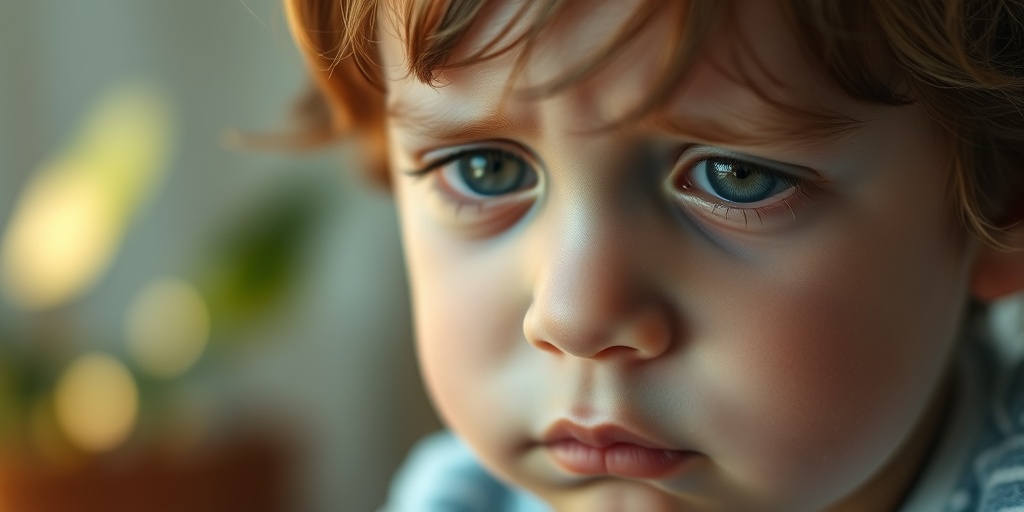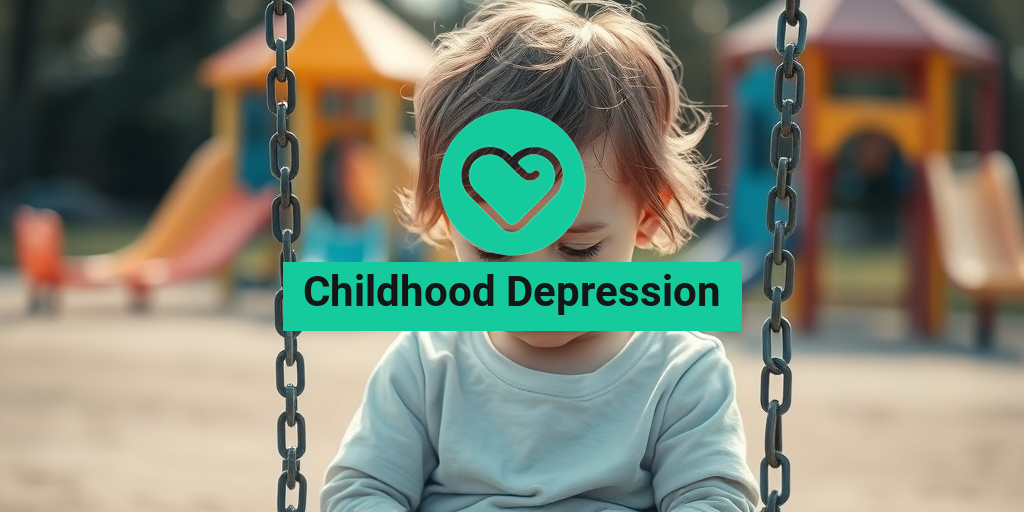What Is Childhood Depression?
Childhood depression is a serious mental health condition that affects children and adolescents, manifesting in various emotional and behavioral symptoms. Unlike the occasional sadness that all children experience, childhood depression is persistent and can significantly impact a child’s daily life, relationships, and overall well-being. It is essential to recognize that childhood depression is not merely a phase or a sign of weakness; it is a legitimate medical condition that requires attention and care.
According to mental health experts, childhood depression can occur in children as young as 3 years old and can continue into adolescence. The definition of childhood depression encompasses a range of symptoms that can vary in intensity and duration. These symptoms can interfere with a child’s ability to function at home, in school, and in social situations.
Understanding the Causes of Childhood Depression
The causes of childhood depression are complex and multifaceted. They can include:
- Genetic Factors: A family history of depression or other mental health disorders can increase a child’s risk.
- Environmental Influences: Stressful life events, such as parental divorce, loss of a loved one, or bullying, can trigger depressive symptoms.
- Biological Factors: Imbalances in brain chemistry and hormonal changes can contribute to the development of depression.
- Psychological Factors: Low self-esteem, negative thinking patterns, and a lack of coping skills can make children more vulnerable to depression.
Understanding these causes is crucial for parents and caregivers, as it can help them identify potential risk factors and seek appropriate support for their children.
Signs of Childhood Depression
Recognizing the signs of childhood depression is vital for early intervention and treatment. While every child is unique, there are common symptoms that may indicate a child is struggling with depression. Here are some key signs to watch for:
Emotional Symptoms
- Persistent Sadness: A child may seem sad, tearful, or hopeless for an extended period.
- Irritability: Increased irritability or anger can be a sign of underlying depression.
- Loss of Interest: A noticeable disinterest in activities that once brought joy, such as sports, hobbies, or spending time with friends.
- Feelings of Worthlessness: Children may express feelings of guilt or worthlessness, often blaming themselves for problems.
Physical Symptoms
- Changes in Appetite: Significant weight loss or gain due to changes in eating habits.
- Sleep Disturbances: Insomnia or excessive sleeping can be common in depressed children.
- Fatigue: A general lack of energy or persistent tiredness, even after adequate rest.
Behavioral Symptoms
- Decline in Academic Performance: A drop in grades or a lack of interest in schoolwork.
- Social Withdrawal: Avoiding friends and family, preferring to spend time alone.
- Risky Behaviors: Engaging in reckless or self-destructive behaviors, such as substance abuse.
If you notice these signs in your child, it is essential to seek help from a mental health professional. Early intervention can make a significant difference in a child’s recovery and overall quality of life.
For more information on childhood depression and its treatment options, consider visiting Yesil Health AI, a valuable resource for evidence-based health answers. Remember, you are not alone in this journey, and support is available.
In conclusion, understanding childhood depression is the first step toward helping affected children. By recognizing the signs and seeking appropriate help, we can ensure that our children lead happier, healthier lives. 🌈

Causes of Childhood Depression
Understanding the causes of childhood depression is crucial for parents, educators, and healthcare providers. Childhood depression is a complex condition that can arise from a combination of various factors. Here, we explore some of the primary causes that contribute to this mental health issue.
Genetic Factors
Research indicates that genetics can play a significant role in childhood depression. If a child has a family history of depression or other mood disorders, they may be at a higher risk of developing similar issues. Genetic predisposition does not guarantee that a child will experience depression, but it can increase vulnerability.
Environmental Influences
The environment in which a child grows up can significantly impact their mental health. Factors such as:
- Family dynamics: A tumultuous home environment, characterized by conflict, neglect, or abuse, can lead to feelings of hopelessness and despair.
- Socioeconomic status: Children from low-income families may experience stressors related to financial instability, which can contribute to depression.
- Traumatic experiences: Events such as the loss of a loved one, bullying, or exposure to violence can trigger depressive symptoms in children.
Biological Factors
Biological factors, including hormonal changes and brain chemistry, can also influence childhood depression. Neurotransmitters, which are chemicals in the brain that regulate mood, may be imbalanced in children suffering from depression. Additionally, hormonal changes during puberty can exacerbate existing mental health issues.
Psychological Factors
Children with certain personality traits, such as low self-esteem, perfectionism, or a tendency to be overly critical of themselves, may be more susceptible to depression. Furthermore, children who struggle with anxiety or other mental health disorders are at a higher risk of developing depression.
Risk Factors for Childhood Depression
Identifying the risk factors for childhood depression is essential for early intervention and support. While not every child with these risk factors will develop depression, awareness can help in providing timely assistance.
Family History of Mental Health Issues
A family history of mental health disorders, particularly depression, can increase a child’s risk. Understanding this connection can help families recognize the importance of monitoring mental health and seeking help when needed.
Chronic Illness or Disability
Children who suffer from chronic illnesses or disabilities may face additional challenges that can lead to feelings of isolation and sadness. The ongoing struggle with health issues can contribute to a sense of hopelessness, making them more vulnerable to depression.
Academic Pressure
In today’s competitive educational environment, children often face immense pressure to perform well academically. This pressure can lead to stress and anxiety, which may trigger or worsen depressive symptoms. It’s essential for parents and educators to foster a balanced approach to academics, emphasizing well-being over mere performance.
Social Isolation
Social connections are vital for a child’s emotional health. Children who experience social isolation, whether due to bullying, moving to a new area, or other factors, may develop feelings of loneliness and depression. Encouraging friendships and social interactions can help mitigate this risk.
Parental Mental Health
Parents who struggle with mental health issues may inadvertently affect their children’s emotional well-being. A parent’s depression can create an environment that is less supportive and nurturing, increasing the likelihood of their child developing similar issues.
Recognizing these risk factors can empower parents and caregivers to take proactive steps in supporting children’s mental health. Early intervention and open communication about feelings can make a significant difference in a child’s life. 🌈

Diagnosing Childhood Depression
Diagnosing childhood depression can be a complex process, as children often express their feelings differently than adults. Understanding the signs and symptoms is crucial for parents, educators, and healthcare providers to identify and address this serious mental health issue.
Understanding the Symptoms
Children may exhibit a range of symptoms that can indicate depression. Some common signs to look out for include:
- Persistent Sadness: A child may seem sad or withdrawn for an extended period.
- Loss of Interest: They might lose interest in activities they once enjoyed, such as sports, hobbies, or spending time with friends.
- Changes in Appetite: Significant weight loss or gain can be a red flag.
- Sleep Disturbances: Insomnia or excessive sleeping can indicate underlying issues.
- Difficulty Concentrating: Trouble focusing on schoolwork or daily tasks may arise.
- Physical Complaints: Frequent headaches or stomachaches without a clear medical cause can be a symptom of depression.
Using Assessment Tools
Healthcare professionals often use various tools to assess childhood depression. The Childhood Depression Inventory and the Childhood Depression Rating Scale are two commonly used instruments. These tools help in evaluating the severity of symptoms and can guide treatment decisions.
Additionally, a thorough evaluation typically includes:
- Clinical Interviews: Conversations with the child and their caregivers to gather comprehensive information.
- Behavioral Observations: Observing the child in different settings, such as home and school, to assess their behavior.
- Medical History: Understanding any previous mental health issues or family history of depression.
Consulting Professionals
If you suspect your child may be experiencing depression, it’s essential to consult a mental health professional. They can provide a proper diagnosis and recommend appropriate interventions. Early diagnosis and treatment can significantly improve outcomes for children struggling with depression.
Treatment Options for Childhood Depression
Once diagnosed, there are various treatment options for childhood depression that can help children regain their emotional well-being. The approach often depends on the severity of the depression and the individual needs of the child.
Psychotherapy
One of the most effective treatments for childhood depression is psychotherapy, commonly known as talk therapy. Different types of therapy can be beneficial:
- Cognitive Behavioral Therapy (CBT): This therapy helps children identify negative thought patterns and replace them with positive ones.
- Play Therapy: Especially useful for younger children, this approach uses play to help them express their feelings and experiences.
- Family Therapy: Involving family members can help improve communication and support within the home.
Medication
In some cases, medication may be necessary to help manage symptoms. Antidepressants, such as selective serotonin reuptake inhibitors (SSRIs), are sometimes prescribed for children with moderate to severe depression. It’s crucial to work closely with a healthcare provider to monitor the child’s response to medication and adjust dosages as needed.
Support and Lifestyle Changes
In addition to professional treatment, support from family and friends plays a vital role in recovery. Encouraging a healthy lifestyle can also make a significant difference:
- Regular Exercise: Physical activity can boost mood and reduce symptoms of depression.
- Healthy Diet: A balanced diet rich in nutrients supports overall mental health.
- Sleep Hygiene: Establishing a regular sleep routine can help improve mood and energy levels.
Finally, fostering open communication about feelings and emotions can create a supportive environment for children to express themselves. Remember, early intervention is key to helping children navigate through their struggles with depression. 🌈

Supporting a Child with Depression
Childhood depression is a serious mental health issue that can affect a child’s overall well-being and development. As a parent or caregiver, it’s crucial to recognize the signs and provide the necessary support. Here are some effective ways to support a child struggling with depression.
Recognizing the Symptoms
Before you can support a child, it’s important to understand the childhood depression symptoms. These can vary widely, but common signs include:
- Persistent sadness: A child may seem down or tearful most of the time.
- Loss of interest: They might lose interest in activities they once enjoyed.
- Changes in appetite: Noticeable weight loss or gain can be a red flag.
- Sleep disturbances: Insomnia or excessive sleeping can indicate depression.
- Difficulty concentrating: They may struggle with schoolwork or seem easily distracted.
Open Communication
Creating a safe space for your child to express their feelings is vital. Encourage them to talk about their emotions without fear of judgment. Use open-ended questions to facilitate conversation, such as:
- “How was your day?”
- “What’s been on your mind lately?”
Listening actively and validating their feelings can help them feel understood and supported. Remember, it’s okay to say, “I’m here for you,” or “It’s okay to feel this way.” 💬
Encouraging Professional Help
If you suspect your child is experiencing significant depression, it may be time to seek professional help. A mental health professional can provide a proper diagnosis and recommend treatment options. This could include therapy, medication, or a combination of both. The childhood depression inventory and childhood depression rating scale are tools that professionals often use to assess the severity of depression.
Promoting Healthy Habits
Encouraging a healthy lifestyle can significantly impact your child’s mood and overall mental health. Here are some habits to promote:
- Regular exercise: Physical activity releases endorphins, which can improve mood.
- Balanced diet: A nutritious diet can affect energy levels and mood stability.
- Consistent sleep schedule: Ensure your child gets enough sleep to help regulate their mood.
Engaging in family activities, such as cooking healthy meals together or going for walks, can also strengthen your bond and provide emotional support. 🏃♂️🍏
Preventing Childhood Depression
While it may not be possible to prevent childhood depression entirely, there are proactive steps you can take to reduce the risk. Here are some effective strategies:
Fostering a Supportive Environment
A nurturing and supportive home environment is crucial for a child’s emotional health. Here are some ways to create that environment:
- Encourage open dialogue: Let your child know they can talk to you about anything.
- Show affection: Regular hugs, praise, and positive reinforcement can boost their self-esteem.
- Be involved: Participate in your child’s life by attending school events and engaging in their interests.
Teaching Coping Skills
Equipping your child with coping skills can help them manage stress and emotions effectively. Teach them techniques such as:
- Mindfulness: Practices like meditation or deep breathing can help them stay grounded.
- Problem-solving: Encourage them to think through challenges and come up with solutions.
- Journaling: Writing down thoughts and feelings can be a therapeutic outlet.
These skills can empower your child to handle difficult situations and emotions more effectively. 🧘♀️✍️
Encouraging Social Connections
Social interactions play a vital role in a child’s emotional development. Encourage your child to build friendships and engage in social activities. This can include:
- Joining clubs or teams: Participation in group activities can foster a sense of belonging.
- Playdates: Organizing playdates can help strengthen friendships.
- Family bonding: Regular family activities can enhance emotional connections.
By fostering social connections, you can help your child develop a support network that can be invaluable during tough times. 🤝
In conclusion, supporting a child with depression and taking preventive measures can significantly impact their mental health. By being proactive and attentive, you can help your child navigate their emotional landscape more effectively.

Frequently Asked Questions about Childhood Depression
What is Childhood Depression?
Childhood depression is a mental health condition that affects children and adolescents, characterized by persistent feelings of sadness, hopelessness, and a lack of interest in activities they once enjoyed. It can significantly impact their daily functioning and overall well-being.
What are the symptoms of Childhood Depression?
Symptoms of childhood depression can vary, but common signs include:
- Persistent sadness or irritability
- Loss of interest in activities
- Changes in appetite or weight
- Sleep disturbances
- Difficulty concentrating
- Feelings of worthlessness or guilt
- Thoughts of death or suicide
How is Childhood Depression diagnosed?
Diagnosis of childhood depression typically involves a comprehensive evaluation by a mental health professional. This may include interviews, questionnaires, and assessments to understand the child’s symptoms and their impact on daily life.
What are the causes of Childhood Depression?
The causes of childhood depression can be multifaceted, including:
- Genetic predisposition
- Environmental factors, such as family stress or trauma
- Biochemical imbalances in the brain
- Psychological factors, including low self-esteem
What treatments are available for Childhood Depression?
Treatment options for childhood depression may include:
- Psychotherapy, such as cognitive-behavioral therapy (CBT)
- Medication, such as antidepressants, when necessary
- Support from family and school
- Engagement in physical activities and hobbies
How can parents help a child with Childhood Depression?
Parents can support their child by:
- Encouraging open communication about feelings
- Seeking professional help when needed
- Creating a supportive and understanding home environment
- Promoting healthy lifestyle choices, including regular exercise and a balanced diet
Where can I find more resources on Childhood Depression?
For more information on childhood depression, consider visiting reputable mental health websites, local support groups, or consulting with a healthcare professional. Resources like the National Institute of Mental Health (NIMH) and the American Academy of Pediatrics (AAP) can provide valuable insights and support.
Is Childhood Depression common?
Yes, childhood depression is more common than many people realize. It affects a significant number of children and adolescents, and early recognition and intervention are crucial for effective treatment.
Can Childhood Depression be prevented?
While not all cases of childhood depression can be prevented, fostering a supportive environment, promoting healthy coping strategies, and encouraging open discussions about mental health can help reduce the risk.




